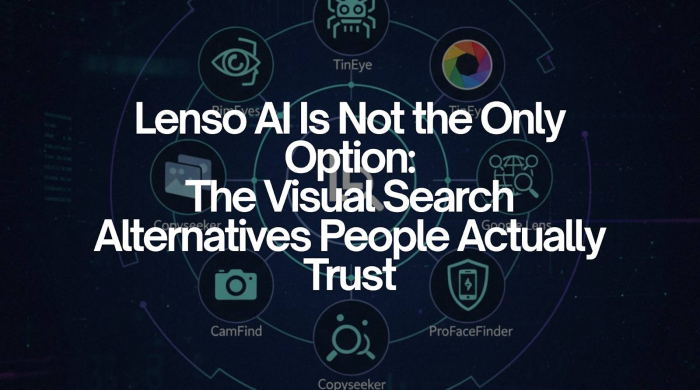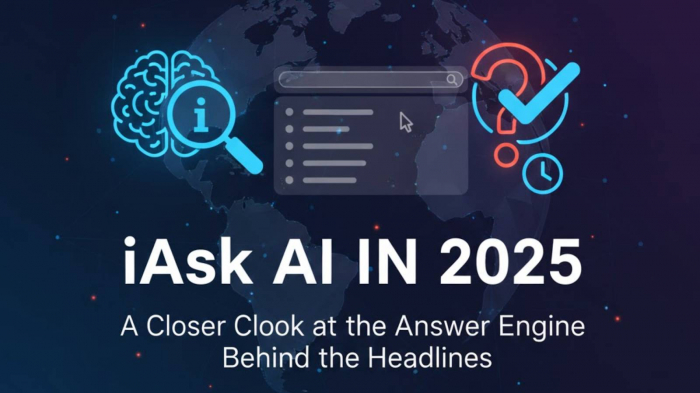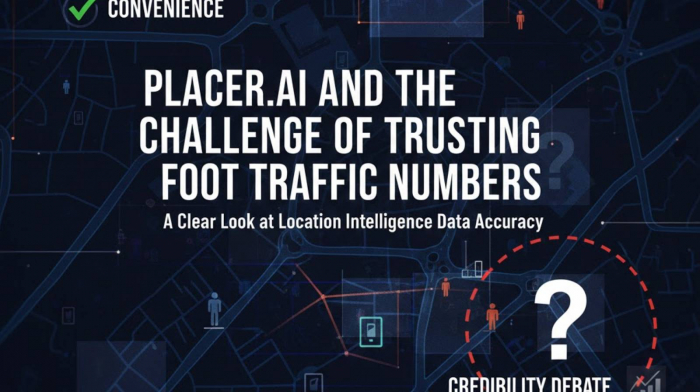In an ever-evolving digital landscape, future proofing SaaS growth with tech and AI marketing tools is essential. This article delves into specific strategies, showcasing how advanced technologies and AI can safeguard and accelerate your SaaS growth, ensuring long-term success.
Leveraging AI for SaaS Growth
AI acts as a powerful ally in developing SaaS products, enabling enhanced ai features and user engagement. In a landscape where differentiation is key, integrating AI into SaaS platforms is not just an option but a strategic imperative for competitive differentiation. SaaS companies that leverage AI gain a competitive edge by automating support, predicting user behavior, and transforming operations.
AI chatbots are revolutionizing customer service by providing 24/7 support without the need for team expansion, significantly reducing response times by up to 75% and operational costs by 40%. This efficiency transforms SaaS marketing strategies, letting businesses concentrate on strategic growth initiatives instead of repetitive tasks in the context of the artificial intelligence ai revolution.
Automated alerts enhance teams’ responsiveness to high-value prospects, aligning marketing, sales, and customer success teams around clear workflows. This alignment is crucial for scaling SaaS solutions and achieving sustained revenue growth.
AI-Powered Customer Insights
One of the most significant advantages of leveraging AI in SaaS is the ability to analyze vast amounts of customer data to gain actionable insights. AI tools can:
- Reveal patterns in purchasing behavior and engagement trends, enabling SaaS companies to offer tailored solutions that improve customer satisfaction and retention.
- Analyze user behavior to predict customer needs and reduce customer churn.
- Ultimately lead to higher customer acquisition rates.
AI capabilities in SaaS platforms enable companies to make informed decisions based on raw data. This data-driven approach ensures that marketing efforts are more targeted and effective, giving SaaS companies a competitive edge in a crowded market. AI-powered SaaS solutions are transforming the way businesses understand and engage with their customers, providing a foundation for long-term success.
Predictive Analytics for Market Trends
Predictive analytics plays a crucial role for SaaS companies by helping them stay ahead of the competition. By leveraging AI and machine learning, SaaS businesses can:
- Analyze customer behavior and market trends to anticipate future demands and adjust their strategies accordingly.
- Use advanced algorithms in AI predictive analytics to identify high-value accounts.
- Prioritize marketing resources, ensuring that efforts are focused on the most promising opportunities.
Machine learning creates adaptive systems that evolve with customer needs, helping SaaS businesses better predict future trends and market shifts. This capability is essential for future-proofing SaaS products and maintaining a competitive edge in an ever-changing market.
By integrating predictive analytics into their technology stack, SaaS companies can make data-driven decisions that drive revenue growth and customer satisfaction.
Automating Repetitive Tasks
AI can automate various sales and marketing tasks, enabling teams to focus on strategic decision-making. From orchestrating real-time management of campaigns to ensuring consistency and measurability, AI-powered tools streamline operations and enhance efficiency. This automation is particularly beneficial for SaaS marketers, who can now focus on crafting innovative strategies rather than getting bogged down by repetitive tasks.
Automating repetitive tasks with AI improves operational efficiency and reduces the risk of human error. This level of automation is essential for SaaS businesses looking to scale their operations and achieve sustained growth. By embracing AI and machine learning, SaaS companies can optimize their workflows and deliver more value to their customers.
Enhancing User Experience with AI Tools

AI tools enable hyper-personalization in SaaS companies by collecting and analyzing real-time user behavior data for continuous product adjustments through analytics platforms. This level of personalization enhances the user experience, making interfaces more engaging and intuitive. Tailored product descriptions and personalized content improve user activation rates and increase product stickiness.
AI can enhance customer experience in SaaS by providing real-time personalized content and interfaces. For example, AI chatbots improve customer interactions by remembering previous issues and tailoring future interactions accordingly. This level of personalization is crucial for B2B SaaS buyers who expect thoughtful and authoritative interactions with their service providers.
The combination of AI and machine learning is crucial for enhancing user experiences and operational efficiency in SaaS. Integrating AI tools into platforms allows SaaS companies to offer tailored solutions that meet users’ unique needs, driving higher engagement and satisfaction.
AI Avatar Generator for Customization
Continuous user interaction with the platform leads to a smarter and more effective user onboarding experience. AI avatar generator help create personalized interfaces that cater to individual user preferences, enhancing engagement and making the experience more relatable and enjoyable. This level of customization is particularly beneficial for SaaS companies looking to differentiate themselves in a competitive market.
The use of AI avatars in user interfaces not only enhances engagement but also fosters a deeper connection between the user and the platform. Leveraging AI models and generative AI, SaaS companies can create dynamic, personalized experiences that resonate with users and drive long-term loyalty.
Integrating Advanced Tech for Scalable Success
Integrating advanced technologies is essential for achieving scalable success in the SaaS industry. AI technologies can help automate customer interactions, improving service efficiency and allowing for 24/7 support. This level of automation is crucial for SaaS companies looking to scale their operations and meet the growing demands of their users.
Machine learning SaaS technologies are expected to redefine user experience and scalability, creating truly AI-powered platforms that adapt and learn. Prioritizing investments across platforms, team skills, and influencer partnerships is crucial for resource planning and ensuring long-term growth. A future-proof SaaS ecosystem is designed for scalability right from the start, enabling companies to achieve sustained success.
Seamless technical integration and advanced tools are key to building scalable data pipelines and ensuring continuous improvement. Leveraging AI and machine learning allows SaaS companies to optimize operations and deliver more value to customers.
Machine Learning Models for Optimization
Machine learning models are integral to enhancing the capabilities of SaaS platforms, allowing for advanced data analysis and predictions. These business models enable data-driven decision-making, significantly improving the performance of SaaS platforms and driving user satisfaction.
Improved performance through machine learning leads to more effective user recommendations and service efficiency. Optimizing platforms with machine learning enhances operational efficiency and delivers a superior user experience.
Seamless Workflow Automation
Seamless integration and no-code automation greatly enhance the workflow efficiency of SaaS teams. Automating workflows allows SaaS teams to focus on strategic initiatives rather than manual processes, improving overall productivity and consistency.
Leveraging advanced tools and scalable data pipelines, SaaS companies and saas providers can automate repetitive tasks, enabling businesses to ensure their teams are more efficient and effective. This level of automation is essential for achieving continuous improvement and scalable success.
Data Security with AI
Implementing advanced encryption protocols is essential for ensuring data security within SaaS applications. AI solutions utilize real-time behavioral analytics and monitoring of user patterns to prevent data breaches, ensuring that sensitive customer data is protected at all times.
Strong security measures in AI SaaS help meet essential compliance standards such as SOC 2 and GDPR. Integrating AI into security protocols enhances data security, ensuring compliance and building user trust.
AI-Driven Marketing Strategies for SaaS Companies

AI integration can significantly reduce sales cycles by:
- Identifying in-market consumers and refining outreach strategies.
- Enhancing marketing efforts, leading to higher engagement and conversion rates.
- Enabling deeper personalization and more effective lead generation through AI-driven marketing strategies.
Implementing an AI influencer strategy for SaaS marketing enables data-driven, pipeline-focused growth. Predictive analysis in AI marketing strategies identifies performance issues and changes in engagement two to three weeks in advance, allowing companies to make proactive adjustments.
Automating tasks with AI ensures high levels of accuracy in customer outreach and engagement processes. This level of automation is critical for connecting marketing efforts to revenue growth and achieving long-term success.
Personalized Marketing Campaigns
Personalization platforms and AI enhance marketing efforts and customer engagement data by:
- Tailoring content to address specific challenges based on shared customer data
- Automating knowledge bases
- Streamlining feature announcements
- Personalizing email journeys
Utilizing AI analytics in performance reviews helps identify strengths and areas needing attention in marketing strategies. Leveraging AI tools allows SaaS companies to create personalized marketing campaigns that resonate with target audiences, leading to improved customer acquisition and brand loyalty.
Optimizing Content Creation
AI can automate repetitive tasks, generate content variations quickly, personalize messaging, and allow time for strategic work. AI-driven content creation leads to faster production, improved SEO, and more resources for strategic planning.
Generative AI solutions can create various types of content like blog posts and ad copy, speeding up the writing process while ensuring quality. AI should enhance human creativity and strategic thinking during content creation. It should not serve as a replacement for these essential human skills.
Analyzing Engagement Metrics
Most effective SaaS marketers rely on relationship management platforms to track campaign results and improve business outcomes. For comprehensive tracking, it is recommended to map metrics across entire buying journeys to gain a holistic view of campaign performance.
Automated alerts can flag performance anomalies, aiding marketers in effectively managing budgets and enhancing campaign performance. Analyzing multiple campaign performance metrics helps SaaS companies identify strengths and areas needing enhancement, leading to significant cost savings and more effective marketing strategies.
AI Captions for Accessibility
AI-generated captions make SaaS platforms more inclusive by making content accessible to users with hearing impairments. This level of accessibility is vital for ensuring that SaaS platforms cater to all users, regardless of their abilities. Integrating AI captions improves user satisfaction and engagement, creating a more inclusive and user-friendly environment.
Overall, the integration of AI captions significantly improves the user experience on SaaS platforms by making content more accessible and engaging. This commitment to accessibility not only enhances the user experience but also reflects positively on the company’s brand.
Future Proofing Your SaaS Product Launches

Embracing new tech, such as AI, is crucial for staying competitive in the rapidly evolving SaaS landscape. By 2025, seven industry trends are set to define the future of the SaaS industry, necessitating early adoption and adaptation. Partnerships with experts can minimize risks in AI-powered SaaS platforms, ensuring compliance and effective integration.
For long-term survival in the SaaS sector, it is essential to strengthen the product-market fit continuously. Leveraging AI and predictive analytics helps SaaS companies future-proof product launches and achieve scalable success by clearly defining their value propositions.
Deep User Analysis for Launch Strategy
AI automates and enhances SaaS product launches by:
- Automating research
- Segmenting audiences
- Predicting reactions
- Accelerating MVP creation
- Simplifying strategies for product launches
Analyzing customer behavior helps SaaS companies predict needs based on patterns, ensuring the product launch strategy aligns with market demands. This level of deep user analysis provides a competitive edge, allowing for more targeted and effective launch strategies.
The aim of the first AI influencer campaign should be to validate your foundation, ensuring that the product meets the needs and expectations of your target audience. Leveraging predictive and data analytics provides actionable insights that inform launch strategies and drive successful product rollouts.
Flexible Launch Frameworks
An adaptable launch framework allows for real-time adjustments based on user feedback and market shifts. Flexible, data-driven launch checklists facilitate smarter product launches in the AI SaaS landscape, ensuring that the product can quickly adapt to changing conditions. This flexibility is essential for responding to market demands and achieving scalable success.
Continuous adaptation and feedback incorporation are crucial to ensure the success of product launches in an evolving market. Maintaining a flexible launch framework allows SaaS companies to make data-driven decisions and adjust strategies, ensuring feature adoption keeps products relevant and competitive.
Continuous Improvement and Learning
Applying continuous improvement in SaaS marketing allows companies to keep pace with rapidly changing market demands. Successful influencer strategies in SaaS marketing must focus on ongoing improvement to ensure effectiveness and prevent stagnation of results. Systematically testing new tools and innovations enhances SaaS offerings and keeps teams ahead of the competition.
True success in AI marketing strategy requires:
- Frameworks that routinely reassess resources and knowledge gaps.
- Monitoring trends and scouting innovations, which is essential for sustained digital automation strategies in SaaS marketing.
- Prioritizing smart implementation by SaaS founders.
- Continuous learning to stay ahead in innovation and maintain a competitive edge.
Engaging in continuous learning and improvement ensures that SaaS companies can adapt to technological advancements and market shifts, driving long-term success and customer satisfaction. Leveraging AI and machine learning helps SaaS companies continuously enhance strategies and deliver more value to customers.
Regular Performance Reviews
Automated alerts can:
- Highlight outliers or dips in performance for targeted reviews.
- Monitor engagement, allowing for adjustments in strategies as needed to ensure marketing efforts remain effective and relevant.
- Facilitate regular review of insights to stay ahead of campaign fatigue and maintain trending ROI, driving continuous improvement in marketing strategies.
Regular performance reviews powered by AI analytics help identify strengths and areas for improvement. This level of continuous learning ensures that SaaS companies can make informed decisions and optimize their marketing strategies for better results.
Adapting to Technological Advancements
Staying abreast of the latest AI advancements enables SaaS teams to effectively integrate these technologies for ongoing growth. Keeping pace with evolving AI capabilities is vital for successfully integrating new technologies into SaaS platforms, ensuring that the company remains competitive and innovative.
To navigate disruptions, teams must engage in continuous strategic evaluation and adaptation to new technological trends. Leveraging AI and advanced tools helps SaaS companies adapt to market trends, enabling tailored solutions that meet user needs and drive long-term success.
Summary
In the rapidly evolving SaaS landscape, leveraging AI and advanced technologies is crucial for future-proofing growth and achieving scalable success. From AI-powered customer insights to predictive analytics and workflow automation, AI tools offer a myriad of benefits that enhance user experience, streamline operations, and drive revenue growth. Embracing these technologies enables SaaS companies to stay ahead of the competition and deliver more value to their customers.
By continuously improving and adapting to technological advancements, SaaS businesses can ensure long-term success and customer satisfaction. Future-proofing your SaaS product launches, personalizing marketing campaigns, and optimizing content creation are just a few of the strategies that can propel your SaaS business into a realm of sustained growth and innovation. Embrace the power of AI and advanced tech tools to unlock new possibilities and drive your SaaS business forward.
Post Comment
Be the first to post comment!





